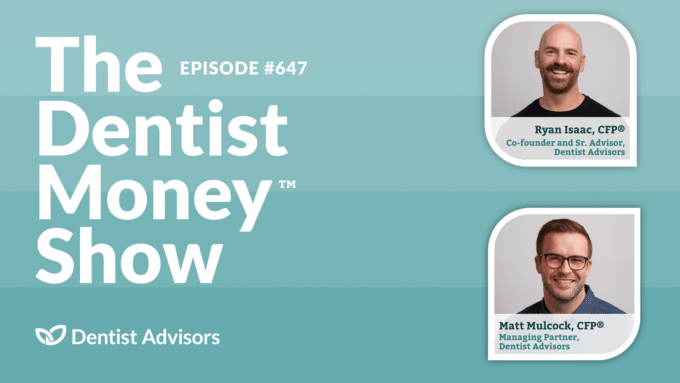Like your cousin’s bad mullet, student loans repayments are officially back. And no, we aren’t excited about it either.
Starting September 1, interest will begin accruing on federal student loans. Soon after, monthly repayments will resume in October. If you were part of the COVID-related forbearance, you’ve probably gotten used to life without student loans over the last 3.5 years. Unfortunately, that payment is coming back.
Failing to plan ahead and make this a priority could lead to expensive consequences. Let’s talk about it.
The cost of putting it off
With the addition of this monthly payment, you will be faced with some decisions. If you put them off, you won’t have as much time to be intentional and think through the tradeoffs you are willing to make. This can lead to further disorganization and unnecessary stress which sets in opportunities for financial mistakes.
You’ve heard of the power of compounding. Usually it’s talked about in the context of investment growth. Compounding absolutely works in the other direction too. If you let things get out of hand, whether you intend to or not, financial consequences have an unfortunate way of piling up rapidly.
Missing a payment is expensive
If you miss a student loan payment, you will be penalized for it. The most immediate consequence is a late fee which can be as high as 6% of the missed payment. After 90 days, federal student loan servicers usually report to the credit bureaus. For private student loans, lenders can report your late payment after just 30 days. Late payments can stay on your credit report for as long as seven years!
The Department of Education understands that nearly 4 years have passed since borrowers have had to make a payment coupled with high inflation over the last 2 years. To offer some protection, they created a 12-month “on-ramp” period. During this time, interest will accrue and payments will still be due: however, they will not be issuing the same consequences as they normally would. Interest won’t capitalize, they won’t report you to the credit bureaus, and your loans can’t default, or get sent to collections.
That said, if you can make your payments, you should. The risks of not putting an intentional plan in place before October 1 and letting the consequences compound are simply not worth it.
So, how do you do that? Take it one step at a time.
#1 Log into your student loan servicer account
It’s time to find your login information and view your account. Keep in mind, there is a good chance your loan servicer has changed. Nearly half of student loan borrowers will resume payments with a new servicer. You should have received email communications or physical mail explaining where your student loans are now and how to access them. If you are not able to locate your student loans, visit the Federal Student Aid website. Once you’ve logged in, go to your account settings and make sure your information is up-to-date. Maybe you’ve moved over the last three years or got married and changed your last name.
#2 Figure out how much your monthly payment will be
This next step can be a little tricky. Student loan servicers have been trying to keep up with an ever-changing environment. If you don’t see an option to select a payment plan on your account just yet, contact your lender or use the loan simulator on the Federal Student Aid’s website. Once you input all your loan information, you’ll be able to compare details of each payment plan option (i.e. total amount to be paid, monthly payment, repayment period, etc).
#3 Consider applying for the new SAVE plan
The new SAVE plan is an Income Driven Repayment (IDR) Plan that is replacing the REPAYE plan. With all IDR plans, your monthly payments are calculated based on your income – not how much you borrowed. The SAVE plan should interest dentists especially because of how much it could save you in interest and taxes. The plan was designed so that you can never owe more than you borrowed. Additionally, less of your income will be factored into your monthly payments. For some dentists, monthly payments could be cut in half depending on their situation. If you want to learn more, check out our article on the SAVE plan.
If you think the SAVE plan could be a viable option for you, consider submitting an application on the Federal Student Aid’s website or through your loan servicer directly. Even if you aren’t sure, you could still submit an application and decide to not opt into that plan. If you don’t see the SAVE plan as an option online, submit an application to the REPAYE plan. You will be automatically switched over to the SAVE plan when they make the transition.
#4 Set up autopay
Once you’ve decided which payment plan is right for you, set monthly payments to autopay. That way you don’t have to think about it when October rolls around. Pro tip: some lenders offer to knock off ~0.25% your interest rate just for setting up autopay!
#5 Bring it back to the budget
The bottom line is the money has to come from somewhere. To fit in your monthly payment, you have two options. Dial down other monthly expenses and maintain your current savings rate. Or keep your monthly spending where it is at and decrease your savings rate. Guess which one we would recommend?
Close
The good thing is you still have time to figure this out and what it means for your monthly cash flow. Dentist Advisors will be providing additional information in the coming weeks, so stay tuned.
Imagine how it would feel to not even realize that your student loan payment started? You planned ahead, made tradeoffs you feel good about, and you set your student loans to autopay. When the headlines start firing off in October, you’ll just shrug and say, “Meh, I already took care of that”.
Do you have questions about your student loans? Email us at loans@dentistadvisors.com





